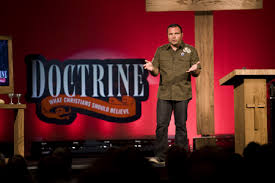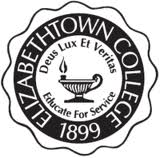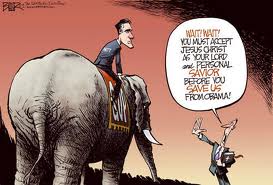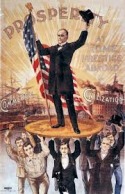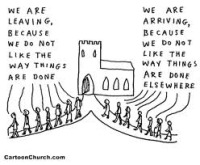 Should Church Budgets Reflect Christian Development Or Staff Needs?
Should Church Budgets Reflect Christian Development Or Staff Needs?
This past Sunday, the church that I attend had a “Family Talk” instead of the sermon which basically was a dissertation from the pastor with a few supportive comments from the three elders that now comprise the church’s board. There was no input from the family sitting in the pews, no feedback, no questions, just a one way dialogue. The presentation showed the direction leadership would like to the congregation to take in the next year by outlining the budget items that would reflect their direction, and a plea for those in the pew to finance those endeavors through generous financial contributions this year. 90% of the budget was nontouchable, already designated areas of commitment, whose details were not disclosed at the meeting. New initiatives comprised 10% of the budget. Only 2% of the budget was designated for “Equipping” or training the saints, the pew sitters, toward Christian and leadership development. More money was designated for developing relationships with New Frontiers networking, for developing Life Groups by training leadership through an 18 month course commitment on counseling to have them certified, for establishing “programs” to draw people to the church, and for deferral of payroll cuts than were designated for “equipping” or developing the saints, the common believer, the pew sitter!
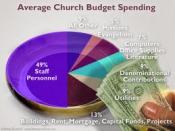 I don’t think their budget is much different than most of today’s Christian Church budgets for buildings and grounds, mortgage payments, payroll commitments, staff professional development and needs, and maintenance supplies comprise a greater load of the budget with other commitments like missions, administrative pledges to overseeing organizations, and benevolence funds. Very seldom is there a major commitment financially for “laity development”.
I don’t think their budget is much different than most of today’s Christian Church budgets for buildings and grounds, mortgage payments, payroll commitments, staff professional development and needs, and maintenance supplies comprise a greater load of the budget with other commitments like missions, administrative pledges to overseeing organizations, and benevolence funds. Very seldom is there a major commitment financially for “laity development”.
I thought a major mission of the church was to “develop disciples”, to develop the saints? Fully funding Pastor(s) and staff to Christian Leadership Growth Conferences is the norm, but financially funding the development of the saints toward Christian discipleship has been neglected by the local church.
So what are we developing the saints to become? Future professional clergy? Future staff? Future Leaders (of what?)? If we developed them to be evangelists would we allow them to give “evangelistic messages” ie. sermons or personal testimonies during Sunday Worship Services, or develop their own outreach programs? If we developed them to be pastors/shepherds, would we allow them to mentor other Christians without being under the micromanaging microscope of the pastor and staff? If we developed them to be teachers of the Word, the Bible, would we allow them to actually preach from the pulpit? What would they be allowed to teach? How do we overcome this fear that their teaching would be heretical, off base, unprofessional? If we developed them to be prophets, what outlet would we give them to prophecy, to flow in the Spirit in freedom? Of course, we would never allow them to develop apostolic skills, for the professional pastoral staff and senior pastor feels that is their exclusive role, not laity’s! A nonskilled, nontrained, nonprofessional seeing over the work of an entire church would be unthinkable!
Most Christian church’s produce “enablers”, for the professional staff does everything for them: prays for them, preaches to them, teaches them, does visitations for them, extend hospitality through the church’s coffee bar to them, provides “programs” for them so they can meet socially, tells them in a service when to sit, when to stand, when to sing, when to pray, when to greet one another, and when to give financially while announcing all the church events because they believe their flock is to ignorant to read or understand the printed bulletin they gave them to read. We don’t develop disciples of Christ, nor leaders if all we do is enable them; and then we get frustrated when they don’t do anything or respond to a preordained programs.
 We, Christians churches, must begin to “invest” in the people who are “financially investing” in their “professional staff” to do all things for them! Pew sitters, the saints, must begin to do more than just “pay the bills”! But how?
We, Christians churches, must begin to “invest” in the people who are “financially investing” in their “professional staff” to do all things for them! Pew sitters, the saints, must begin to do more than just “pay the bills”! But how?
Professional Development is designed to develop the professional in what he does in his profession! Getting a college degree, a proper certification, an academic title directly influences one salary and leadership position. That is for the professional staff, but what do those in the congregation have to do to earn positions of favorability, positions of freedom to serve, positions to minister in freedom?
I know of no church staff that tries to equip the saints to do what they do, thus putting themselves out of a job! Instead of focusing in “equipping” or “preparing” the saints for service, the professional staff gets caught up in doing it themselves, for they are better trained, better equipped, and more highly educated to do the task than their counterparts in the pew. What message is the church sending when they want their parishioners to financially support their budget to pay their salaries, their expenses, their benefits, their professional development, yet the budget holds little to financially support the laity’s own personal development in their faith, their journey, their spiritual growth?
 Check your church budget. What does it reveal? What or who are you investing in? Are the saints lost in your budget? Oh, I forgot, they aren’t lost; they just have to finance is sacrificially through their tithes and offerings, usually under the premise of feeling guilty through funding drives and pleas every Sunday before the offering.
Check your church budget. What does it reveal? What or who are you investing in? Are the saints lost in your budget? Oh, I forgot, they aren’t lost; they just have to finance is sacrificially through their tithes and offerings, usually under the premise of feeling guilty through funding drives and pleas every Sunday before the offering.
Where you put your money exposes your heart, your treasures, your priorities, and your goals and dreams. Church budgets reveal the heart and treasure of the church. Unfortunately, we should be shocked at what they reveal, and begin to rethink how we should readjust our priorities in them.
 Why I Wouldn’t Want The Five Fold In My Church – Part II
Why I Wouldn’t Want The Five Fold In My Church – Part II If there is ever a time the Apostles’ teaching is needed to restore doctrinal unity, it is today, but that teaching, although simplistic, would challenge the majority of the theology of most church sects today. They wouldn’t want their theology challenged, would be offended that others have challenged their theology, and would immediately become defensive.
If there is ever a time the Apostles’ teaching is needed to restore doctrinal unity, it is today, but that teaching, although simplistic, would challenge the majority of the theology of most church sects today. They wouldn’t want their theology challenged, would be offended that others have challenged their theology, and would immediately become defensive.










